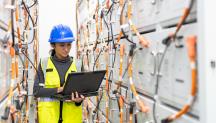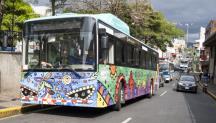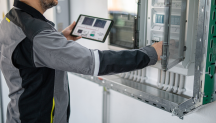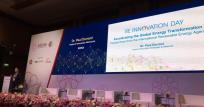
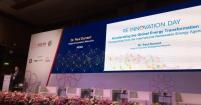
Renewable Technology Innovations in Focus at IRENA Innovation Day in Bangkok
Newsletter
Artificial intelligence and big data, the Internet of Things and batteries are innovative solutions that will enable massive solar and wind use and amplify the transformation of the power sector based on renewables. By 2050, over 60 per cent of total power generation could come from wind and solar renewables globally, driven by the imperative to decarbonise and electrify, IRENA finds.
New “Innovation Briefs” on enabling technologies have now been released during the Agency’s Innovation Day in Bangkok which was co-hosted by the Energy Ministry of Thailand and took place jointly with 2019 ASEAN Energy Business Forum. The event was the second in a series of Innovation Days that IRENA is organizing around the world with the goal of connecting policy makers with innovators to inform and inspire the uptake of renewable energy. It showcased emerging innovations from across the ASEAN region and offered a series of session on solutions to decarbonise road transport, digital solutions for renewable power and solutions for energy storage.
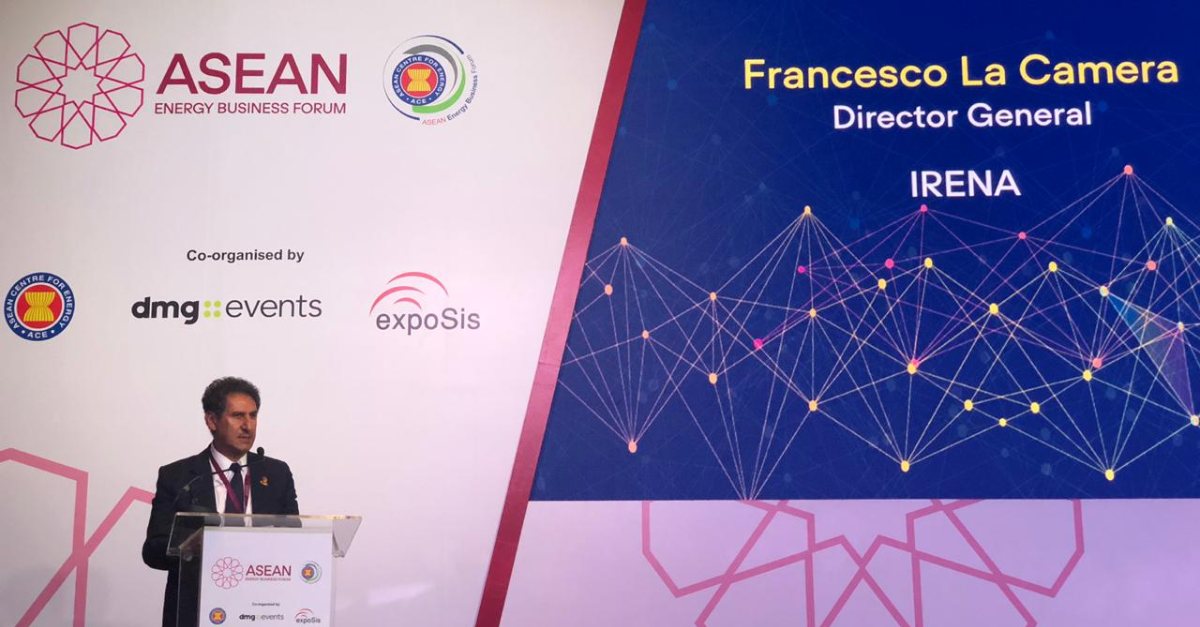
Opening the Innovation Day, IRENA Director-General Francesco La Camera underlined the importance of a systemic approach to innovation. “An approach is required that combines technology with novel business models, supportive market design and efficient system operation to create solutions”, he said. “Those solutions must be implemented in a coherent way through careful planning and smart policy-making. Only the combination of innovations and actions across all these dimensions will bring real progress. The good news is that we already have many of the tools we need to decarbonise the economy.”
While IRENA’s recent report on the “Innovation Landscape for a Renewable Powered Future” provides a toolbox of solutions for policy makers, and guidance on how to apply them system-wide in a coherent and mutually-reinforcing way, the five new “Innovation Briefs” give an overview on how digital technologies increase flexibility in the system for a larger integration of renewables.
Internet of Things Digitalisation is a key amplifier of the power sector transformation, enabling the management of large amounts of data and optimising increasingly complex systems. This brief provides an overview of the Internet of Things and its applicability in the energy sector, with a focus on how this technology can contribute to increasing shares of VRE in the power system.
Artificial Intelligence and Big Data From mobile virtual assistants to image recognition and translation to a myriad of other uses, artificial intelligence (AI) is playing an increasingly important role in our modern lives. This brief provides an overview of artificial intelligence and big data, along with their applicability in the energy sector.
Utility-scale batteries This brief provides an overview of utility-scale stationary battery storage systems -also referred to as front-of-the-meter, large-scale or grid-scale battery storage- and their role in integrating a greater share of VRE in the system by providing the flexibility needed. Battery storage systems are emerging as one of the potential solutions to increase system flexibility, due to their unique capability to quickly absorb, hold and then reinject electricity.
Behind-the-meter batteries This brief provides an overview of behind-the-meter (BTM) battery storage, also referred to as small-scale battery storage, and its role in supporting the integration of VRE in the grid. The brief explains the benefits that BTM batteries can bring both to the power system and to consumers, as well as the role of BTM battery storage in microgrid and mini-grid settings.
Electric vehicle smart charging EVs represent a paradigm shift for both the transport and power sectors, with the potential to advance the decarbonisation of both sectors by coupling them. Although the transport sector currently has a very low share of renewable energy, it is undergoing a fundamental change, particularly in the passenger road vehicle segment where EVs are emerging. This brief provides an overview of the services that electric vehicles (EVs) can provide to the power system through smart charging, and of the importance of such charging schemes for the smooth integration of EVs in the grid.
